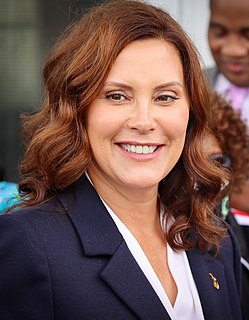A Quote by Friedrich August von Hayek
To combat depression by a forced credit expansion is to attempt to cure the evil by the very means which brought it about; because we are suffering from a misdirection of production, we want to create further misdirection -- a procedure which can only lead to a much more severe crisis as soon as the credit expansion comes to an end.
Related Quotes
One day, because they realize for some reason or other that they must stop credit expansion, the banks do stop creating new credit to lend. Then the firms that have expanded cannot get credit to pay for the factors of production necessary for the completion of the investment projects which they have already committed themselves. Because they cannot pay their bills, they sell off their inventories cheap. Then comes the panic, the breakdown. And the depression starts.
True, governments can reduce the rate of interest in the short run. They can issue additional paper money. They can open the way to credit expansion by the banks. They can thus create an artificial boom and the appearance of prosperity. But such a boom is bound to collapse soon or late and to bring about a depression.
Sometimes I wonder how much of these debates have to do with the desire, the legitimate desire, for that history to be recognized. Because there is a psychic power to the recognition that is not satisfied with a universal program, it's not satisfied by the Affordable Care Act, or an expansion of Pell grants, or an expansion of the earned-income tax credit.
Unfortunately, once an economy is geared to expansion, the means rapidly turn into an end and "the going becomes the goal." Even more unfortunately, the industries that are favored by such expansion must, to maintain their output, be devoted to goods that are readily consumable either by their nature, or because they are so shoddily fabricated that they must soon be replaced. By fashion and built-in obsolescence the economies of machine production, instead of producing leisure and durable wealth, are duly cancelled out by the mandatory consumption on an even larger scale.
There are many misconceptions about depression-mostly negative. Unfortunately, because depressed people think negatively about depression and its treatment, they don't get help, which allows the depression to worsen, which leads to more negative thinking, which produces a vicious cycle of suffering.
Every increase of protective duties is necessarily followed, in the present condition of our country, by an expansion of the currency, which must continue to increase till the increased price of production, caused by the expansion, shall be equal to the duty imposed, when a new tariff will be required.





























